Yokohama Mold Co., Ltd. (YMC)
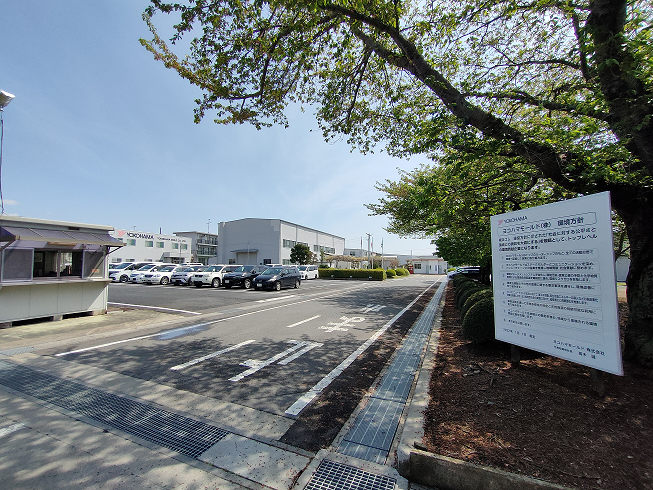
Production and distribution of tire molds
Total site area16,563 m2
Number of employees129 (as of December 2021)
Location2227-1, Kamitamari, Omitama City, Ibaraki 311-3436, JAPAN
Contact for consultation and complaintsCorporate General Affairs and Procurement Department Tel: +81-299-26-1417 Fax: +81-299-26-3316
Message from the President
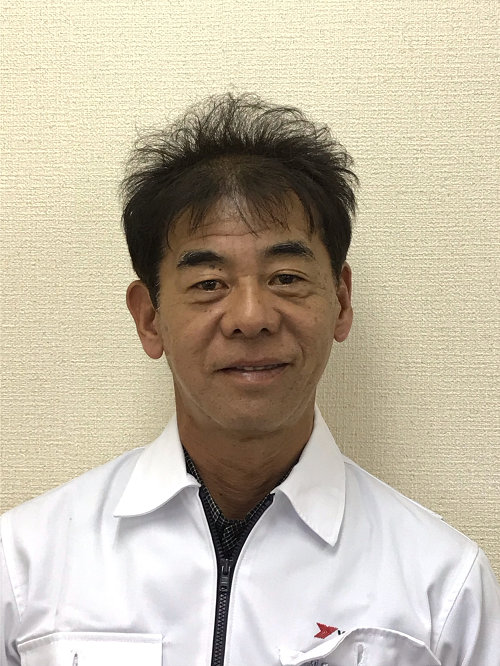
Makoto Takagi
This company became a member of the Yokohama Rubber Group in August of 2009, thus continuing the traditions of tire mold production that began with a group of companies established in 1916. Currently, besides undertaking all tire mold and related product development, design and production work for the Yokohama Rubber Group, we also undertake global procurement tasks.
As for environmental protection activities, YMC acquired ISO 14001 certification in 2010, and achieved its “zero emission” target in 2013. We are currently aiming to realize further improvements, using new technology and improvement of our production processes to achieve resource savings and reduce emissions, and endeavoring to implement thorough energy-saving activities.
Striving to be a company that grows and develops alongside its stakeholders, we are working to improve working conditions for our employees, implement effective human resource development, promote communication with the local communities, and strengthen relationships with suppliers.
In 2018, we established a mold manufacturing subsidiary in Thailand and continued our efforts to obtain ISO 14001 certification.
As a member of the Yokohama Rubber Group, we are committed to becoming “a company having world-class strengths in technologies for protecting the environment”, and we will expand the activities that we have been working on in Japan to overseas to promote environmental activities, improve operational efficiency, and contribute to society.
Organizational Governance
Promoting compliance
In line with our corporate philosophy of “delivering the best products at competitive prices and on time,” we have established a policy whose abbreviated title is “SEQPCDT” (S: safety, E: environment, Q: quality, P: production, C: cost, D: delivery, and T: training). This policy addresses the three important issues listed below.
In addition, besides working to enhance the capabilities of our internal auditing staff so as to strengthen governance, we are also working to make necessary adjustments to relevant rules and guidelines.
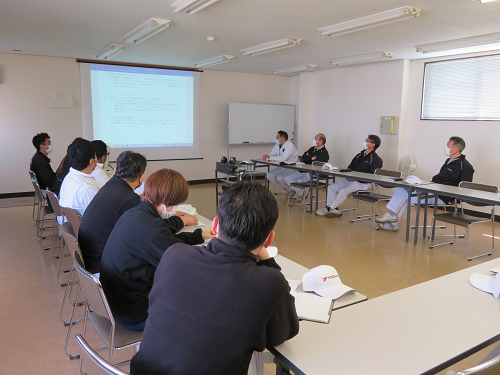
First meeting of the internal environmental audit
- Reducing the environmental burden by raising productivity.
- Developing new technologies and environmentally-friendly products.
- Emphasizing human resources cultivation and compliance.
Human Rights
“Workplace Compliance Seminars” are conducted for all employees. We are also working hard to raise the understanding of human rights.
This year, in order to prevent infection of COVID-19, the course was conducted as a self-study with materials distributed.
Labor Practices
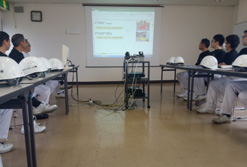
Reporting on safety response measures
Safety
We continue to identify and improve areas of insecurity and conduct hazard prediction training through monthly meetings of the Safety and Health Committee, safety patrols, near-misses, and 4R-KYT as part of group activities. In addition, every year in May, all employees participate in a disaster drill.
Recruitment
Besides recruiting recent graduates on a regular basis, we also adopt a proactive approach towards recruiting mid-career hires for full-time positions. We value the capabilities and experience that mid-career hires possess, and we recruit employees of different nationalities over a wide age range.
Education and training for employees
In addition to education and training carried out within our company, we proactively implement human resources cultivation that makes effective use of the Yokohama Rubber training system.
Employment of people with disabilities
The company has met its statutory obligations with respect to the employment of people with disabilities.
Employment Extension
We have established a system for the continued employment of employees aged 65 and over, and are working to utilize employees that are healthy and willing to work.
Measures to prevent COVID-19 infection
We have been promoting teleworking, preventing splashes in the office, and staggering lunch hours to avoid the three densities.
The Environment
Environmental management
Yokohama Rubber’s management policies have established “Deal fairly with society and value harmony with the environment” as a norm, and we aim to become “a company having world-class strengths in technologies for protecting the environment” in accordance with this.
- As a company, with senior management taking the lead, Yokohama Mold is working on measures that take the environment into consideration in all areas of its business.
- By intensifying communication with stakeholders and promoting collaboration with other companies in the value chain, Yokohama Mold is striving to make a positive contribution to the local community and to society.
- Our environmental management systems have been strengthened, and we are taking steps on an ongoing basis to advance the prevention of both environmental pollution and sensory discomfort, and to improve protection of the environment.
- We will comply with environmental laws and regulations, and all other applicable requirements. Furthermore, we shall dedicate ourselves to improving the environment around us.
- To achieve carbon neutrality, we promote decarbonization measures such as energy-saving activities and introduction of renewable energy. We also promote resource conservation and recycling to realize a recycling-oriented society.
- Through our business activities, we are working to help safeguard biodiversity and ensure that biological resources can be used in a sustainable manner.
- Yokohama Mold will seek to promote harmony with the planet, aiming to become a company that contributes to environmental protection while being trusted by local communities.
- Our environmental policies will be made available to the public.
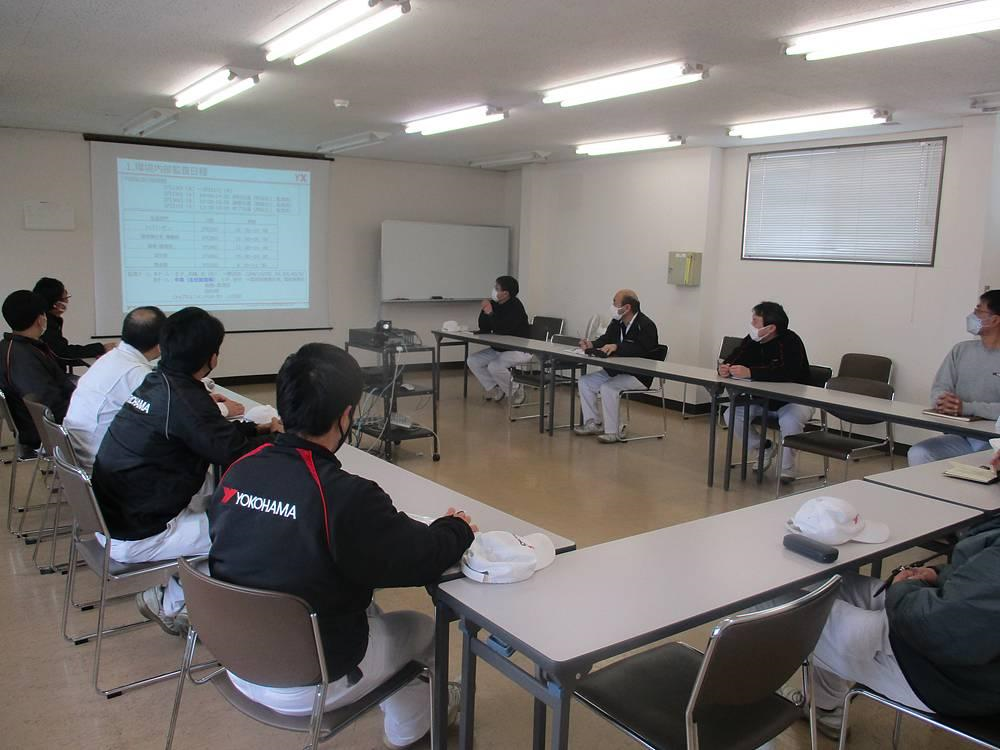
Case study examples of dealing with environmental issues
With the aim of reducing the amount of waste generated during tire production, Yokohama Mold is developing and adopting new, environmentally-friendly tire molds.
In regard to industrial waste generation, Yokohama Mold continues to operate as a “zero emission” company.
To further reduce CO2 emissions, the company is implementing thorough energy conservation measures in regard to production facilities, by upgrading equipment to reduce power consumption, reducing the time needed to complete machine processing tasks, etc.
Other measures being implemented on an ongoing basis to reduce electric power consumption include the deployment of a “Green Curtain,” the use of bubble wrap that is normally used for packaging to improve window insulation, the fitting of timers to warm-water type toilet seats, etc.
We are also actively implementing activities to safeguard biodiversity.
Environmental data
Move the screen to the left or right to see the table information
| Category | FY 2017 | FY 2018 | FY 2019 | FY 2020 | FY 2021 |
|---|---|---|---|---|---|
| Waste disposed (t) | 261 | 208 | 220 | 165 | 940 |
| Water usage (1,000m3) | 1.9 | 1.6 | 2.5 | 2.1 | 2.4 |
| Greenhouse gas emissions (1,000t-CO2) | 0.85 | 0.87 | 0.65 | 0.62 | 0.77 |
Fair Operating Practices
Basic transaction contracts are concluded with our business partners, and we develop relationships with them that are based on a sense of fairness.
With respect to our major business partners, information is exchanged with them on a regular basis; we are also using video-conferences with overseas business partners to strengthen communication.
In addition, employees involved in purchasing are periodically educated on the Subcontract Act.
Consumer Issues
While we do not market our products directly to consumers, we endeavor to keep up to date with consumer trends by attending meetings to exchange information with Yokohama Rubber’s product development department, and by attending Yokohama Rubber’s new product development meetings.
Community Involvement and Development
As part of our community contribution activities, we strive to provide opportunities for young people, who represent the future, to experience playing an active role in society, for example by providing workplace experience learning opportunities for local junior high school students and offering internships to students from neighboring vocational schools. We have also created an environment that makes it easy for our employees to contribute to the local community, e.g. by formulating a volunteer leave system.
Yokohama Forever Forest Project
We are raising plant seedlings for the purpose of providing them to the local community.
We are also using the knowhow that we have developed to participate in related activities as a core member of the Yokohama Rubber Group.
Relationship with the local societies
Every year in October, we hold the “YOKOMO” family festival, which helps to strengthen communication and exchange between employees, their families, and local residents.
Unfortunately, due to COVID-19, we were unable to hold or participate in these events this year as well, but we will actively promote exchanges when the situation improves.
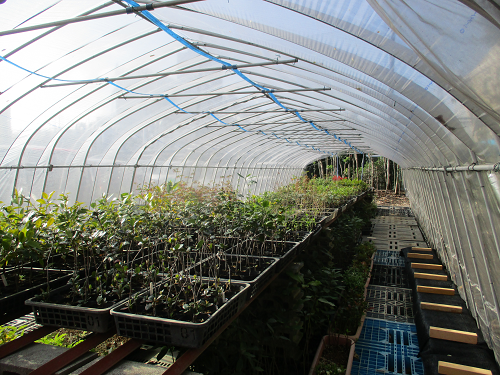
Seedling growing


